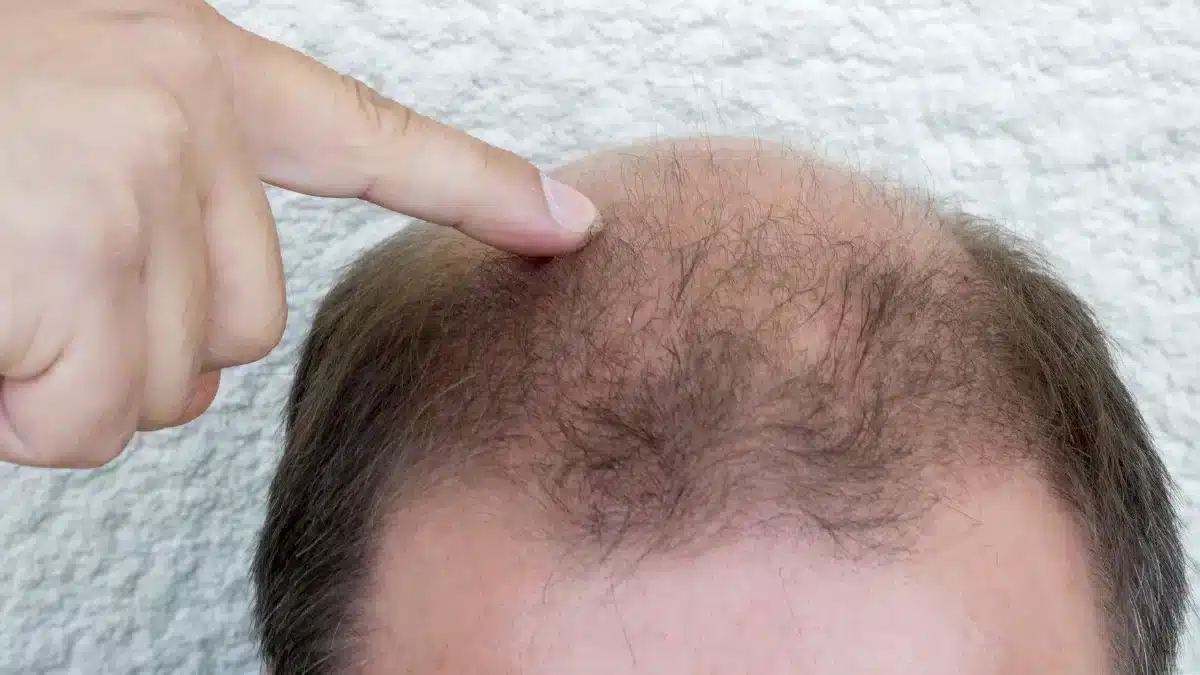Guide to the Telogen Effluvium Diet: Promoting Hair Regrowth through Nutrition
Telogen effluvium is a very common form of hair loss characterized by excessive hair shedding.
It can be due to various triggers, such as stress, hormonal imbalances, illness, or dietary deficiencies.
While it is a temporary condition, and the hair usually regrows after the underlying cause is addressed, a well-balanced diet can significantly support hair regrowth during this challenging period.
In this article, we will know the importance of a Telogen Effluvium Diet and delve into the key nutrients and dietary practices that may help manage this condition.
What is Telogen Effluvium
Telogen Effluvium is a temporary hair loss condition where many hair follicles enter a resting phase prematurely.
It leads to excessive shedding and thinning of hair.
Stress, illness, hormonal changes, or poor nutrition can trigger this condition.
The good news is that it’s usually reversible, and hair regrowth occurs once the underlying cause is addressed.
The role of diet in Telogen Effluvium
Diet plays an important role in maintaining overall health, directly impacting our hair and scalp condition.
A specific diet may not cure Telogen Effluvium entirely.
It can support the body’s natural hair growth processes and minimize the effects of hair loss.
Let’s explore some essential dietary aspects to consider when dealing with Telogen Effluvium:
Nutrient-rich foods for hair health

A diet is vital for your overall health as well as for your hair growth.
You must add the following foods if you are looking for a Telogen Effluvium diet:
- Protein: Include adequate protein sources such as lean meats, fish, eggs, legumes, and dairy products. Protein is a vital building block for hair, and a deficiency can contribute to hair thinning
- Iron: Iron deficiency is one of the common causes of hair loss, especially in women. Incorporate iron-rich foods like spinach, lentils, red meat, and tofu to promote healthy hair growth
- Omega-3 Fatty Acids: Foods having omega-3 fatty acids, like fish, chia seeds, and walnuts, can help reduce inflammation and improve hair health
- Biotin: Biotin, which is also known as vitamin B7, is essential for hair growth. Consume biotin-rich foods like eggs, almonds, sweet potatoes, and avocados
- Vitamin C: Enhance collagen production and iron absorption by including vitamin C-rich foods like citrus fruits, strawberries, and bell peppers
- Vitamin E: It protects the areas of the scalp from stress and damage. Damaged skin on the scalp can cause poor hair quality and lesser hair follicles. Vitamin E can restore the quality of your hair. You can get vitamin E from avocados, almonds, hazelnuts, and sunflower seeds
- Zinc: Zinc plays an essential role in hair tissue repair and growth. The compounds of zinc have also been used to treat Telogen Effluvium. You can get zinc from oysters, beef, and pumpkin seeds
- Lysine-rich foods: Lysine is an important amino acid the body can’t produce alone. So, lysine can be taken from dietary sources like nuts, eggs, poultry, red meat, pork, and cheese
Avoid Crash Diets
Crash diets or severely restricting calorie intake can lead to nutrient deficiencies.
This may worsen the severity of Telogen Effluvium.
Instead, focus on balanced, sustainable weight loss methods if necessary.
Consider a Balanced Diet Plan
Consult with a dietitian to create a personalized diet plan that addresses your nutritional needs while considering Telogen Effluvium.
A balanced diet will help ensure you receive all essential nutrients.
Hydration is key

Stay hydrated by drinking an adequate amount of water daily.
Hydration supports overall bodily functions, including hair health.
Manage Stress
Stress is a common trigger for Telogen Effluvium.
Practice stress-reduction techniques like meditation, yoga, or spending time in nature to promote overall well-being and minimize hair loss.
Avoid Trigger Foods
While no specific diet is universally recommended for Telogen Effluvium, some individuals may find that certain trigger foods exacerbate their condition.
These can include processed foods, sugary snacks, and excessive caffeine.
Conclusion
Telogen Effluvium is a temporary hair loss condition where hair follicles rest too soon, causing excess shedding and thinning.
Factors like stress, illness, hormones, and poor nutrition can trigger it.
Though diet won’t cure it, eating well supports natural hair growth and reduces hair loss.
Include protein, iron, omega-3s, biotin, and vitamin C in your diet.
Stay hydrated, manage stress, avoid crash diets, and consult a dietitian for personalized plans.
Minimize processed foods and caffeine to improve hair health during Telogen Effluvium.
By nourishing our bodies with the proper nutrients and adopting a healthy lifestyle, we can support our hair’s natural growth process.
Frequently Asked Questions
What are the foods to eat for Telogen Effluvium?
For Telogen Effluvium, focus on nutrient-dense foods like lean meats, fish, eggs, legumes, and dairy for protein, while incorporating iron-rich sources like spinach, lentils, and tofu. Include omega-3 fatty acids from fatty fish and chia seeds, and consume biotin from eggs, almonds, and avocados. Vitamin C-rich foods like citrus fruits and bell peppers also aid hair health.
Can caffeine help Telogen Effluvium?
Caffeine does not directly help Telogen Effluvium. Excessive caffeine intake may worsen the condition. High caffeine consumption can contribute to stress and disrupt sleep patterns, which might exacerbate hair loss. It’s best to moderate caffeine intake and focus on a balanced diet for better hair health during Telogen Effluvium.
Does drinking water help Telogen Effluvium?
Drinking water benefits Telogen Effluvium as it supports overall bodily functions, including hair health. Staying hydrated helps maintain the proper functioning of the body, which can indirectly promote healthier hair growth during this temporary hair loss condition.
What to avoid with Telogen Effluvium?
With Telogen Effluvium, avoid crash diets and severely restrict calorie intake, which may lead to nutrient deficiencies and worsen hair loss. Additionally, limit the consumption of trigger foods such as processed items, sugary snacks, and excessive caffeine, which could exacerbate the condition.
WowRx uses only high-quality sources while writing our articles. Please read our content information policy to know more about how we keep our content reliable and trustworthy.






